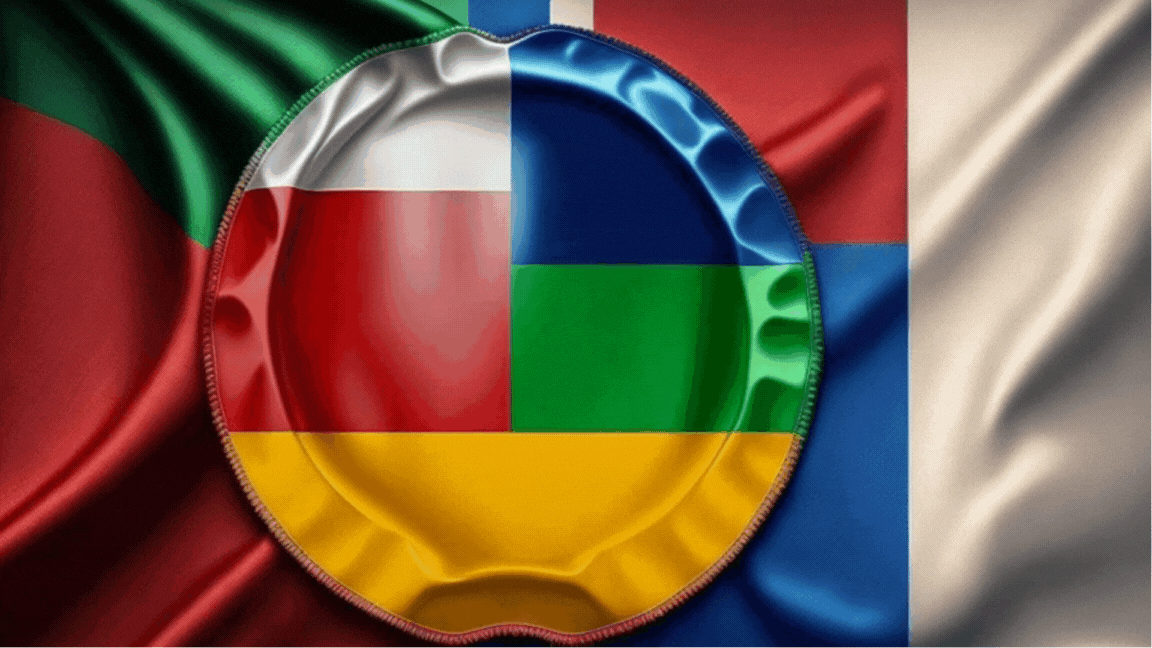
Assaulting the security detail of a vice president? Yes
It happened in Colombia, where the main vehicle of the caravan accompanying Gustavo Petro's number two was hit by a bullet in the town of Timba, belonging to the always turbulent region of Cauca. "I have been informed by my security and protection team that the main vehicle of the [...] caravan [...] in which I normally mobilize, was hit by a projectile, apparently from a rifle, without causing any injury to the occupants," said Vice President Francia Márquez. She had attended an event at the future headquarters of a university, and at that moment was already participating in another one in the city of Cali.
But what has interested me most about the event is the fragment of Marquez's statements that I reproduce next, which reflects the incapacity of the State to solve the guerrilla problem. "I want to insistently ask the armed groups to silence their rifles, to allow Cauca to live in peace and for the [educational] program to advance," she said. In other words, the government is making a kind of plea for the rebels to refrain from continuing to exercise violence and harass the population. Márquez has experience as an environmental activist, and has in her record the miracle of surviving an armed attack. Her own father was assaulted last month while traveling with a six-year-old child.
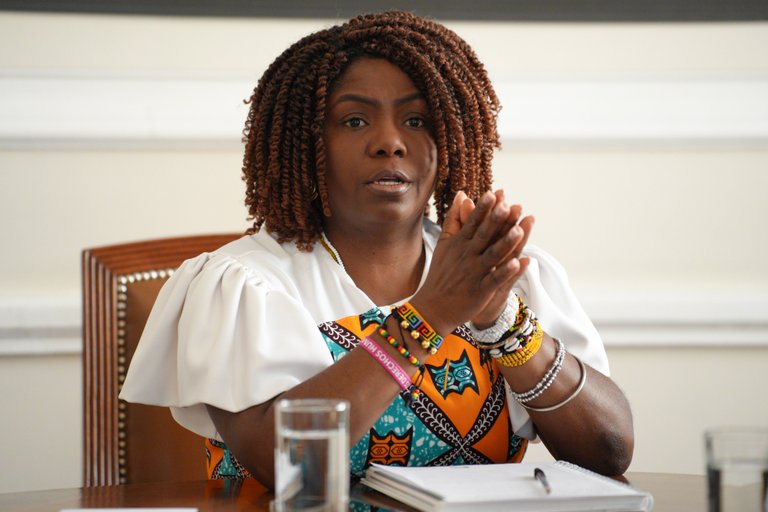 Colombian Vice President Francia Márquez (source).
Colombian Vice President Francia Márquez (source).Bukele now targets high prices
In an interesting crusade, President Nayib Bukele introduced a new food program that seeks to eliminate middlemen in the distribution and commercialization of agricultural products. The idea is that importers and producers can sell their products directly to the population at certain points of the Salvadoran geography. The discourse of the undisputed Salvadoran political leader reproduces some of the jargon of his peers in leftist political projects such as Venezuela or Cuba, and even acknowledges it. For example, Bukele talks about how his Ministry of Agriculture's markets will sell products at "fair prices". "I'm sorry, guys, I know I'm going full Hugo Chavez here", he conceded.
El Salvador's strongman used the same rhetoric he took on in his first term against the criminals that now crowd his jails, but now aimed at those who "abuse" the people by selling at high prices. "I am going to call on importers, marketers, [and] food wholesalers to stop abusing the Salvadoran people or they will complain later", he warned. "We are doubling the number of agro markets, and producers and importers tell me that they can lower prices even more due to the increase in sales and the fact that they can now also buy their supplies wholesale", Bukele stressed without providing data to back up the claim, according to EFE. The economic issue is the biggest debt the president must settle for his controversial second term.
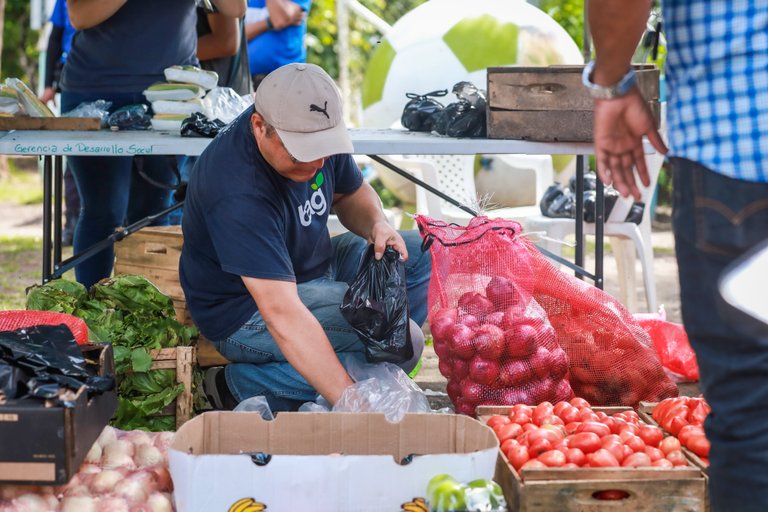 Tomatoes are now traded more cheaply along with other products in new agro markets (source).
Tomatoes are now traded more cheaply along with other products in new agro markets (source).Agricultural producers point out that during his administration there has also been no progress in the development of a national agricultural policy for generating food sovereignty. "This is the fifth government to which we have proposed the need for the creation of this national agricultural policy and so far they have not heard us, the governments have played crazy, it seems that they benefit more from the existence of imports than promoting domestic production", told the president of the Salvadoran Chamber of Small and Medium Agricultural Producers. To guarantee local consumption the country must import 90% of vegetables and greens, 60% of dairy products, 32% of corn, 25% of beans, and 33% of rice. Bukele is recognized for his successful campaign against criminal gangs, although humanly costly. We will see how this new battle plays out.
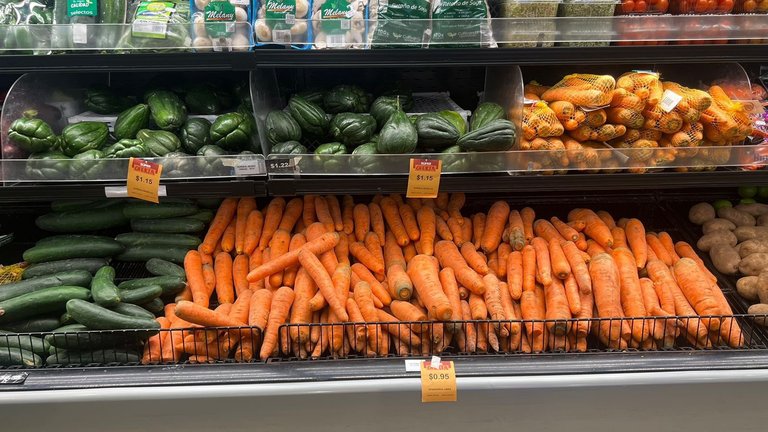 Some people find a break with lower prices (source).
Some people find a break with lower prices (source).Panama tightens maritime controls to combat irregular migration
After ordering the closure of at least five irregular border crossings with Colombia—with barbed wire in Greg Abbott fashion—, the new administration of José Raúl Mulino deployed coast guard and border police forces along the Caribbean and Pacific coasts. Mulino indicated "the retention and delivery to the Colombian police or immigration authorities of any person who travels by boat with irregular migrants and tries to enter Panamá's jurisdictional areas". The narrative of the new head of the Herons' Palace is that he guarantees that irregular migrants access the country through a "humanitarian passage", which leads them to a point where they are attended by several international organizations such as the International Red Cross. As I have pointed out, Colombia is on the other side of the aisle. "Migration is stopped by removing economic blockades and improving the economy of the south", Petro counterattacks.
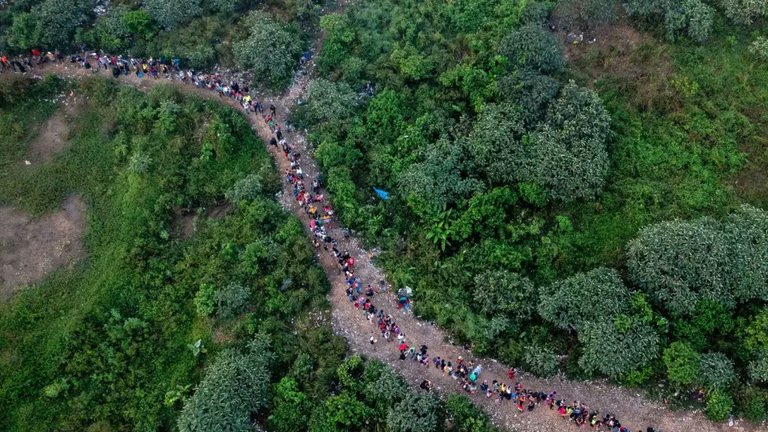 The migratory drama (source).
The migratory drama (source).And this is all for our report today. I have referenced the sources dynamically in the text, and remember you can learn how and where to follow the LATAM trail news by reading my work here. Have a nice day.

